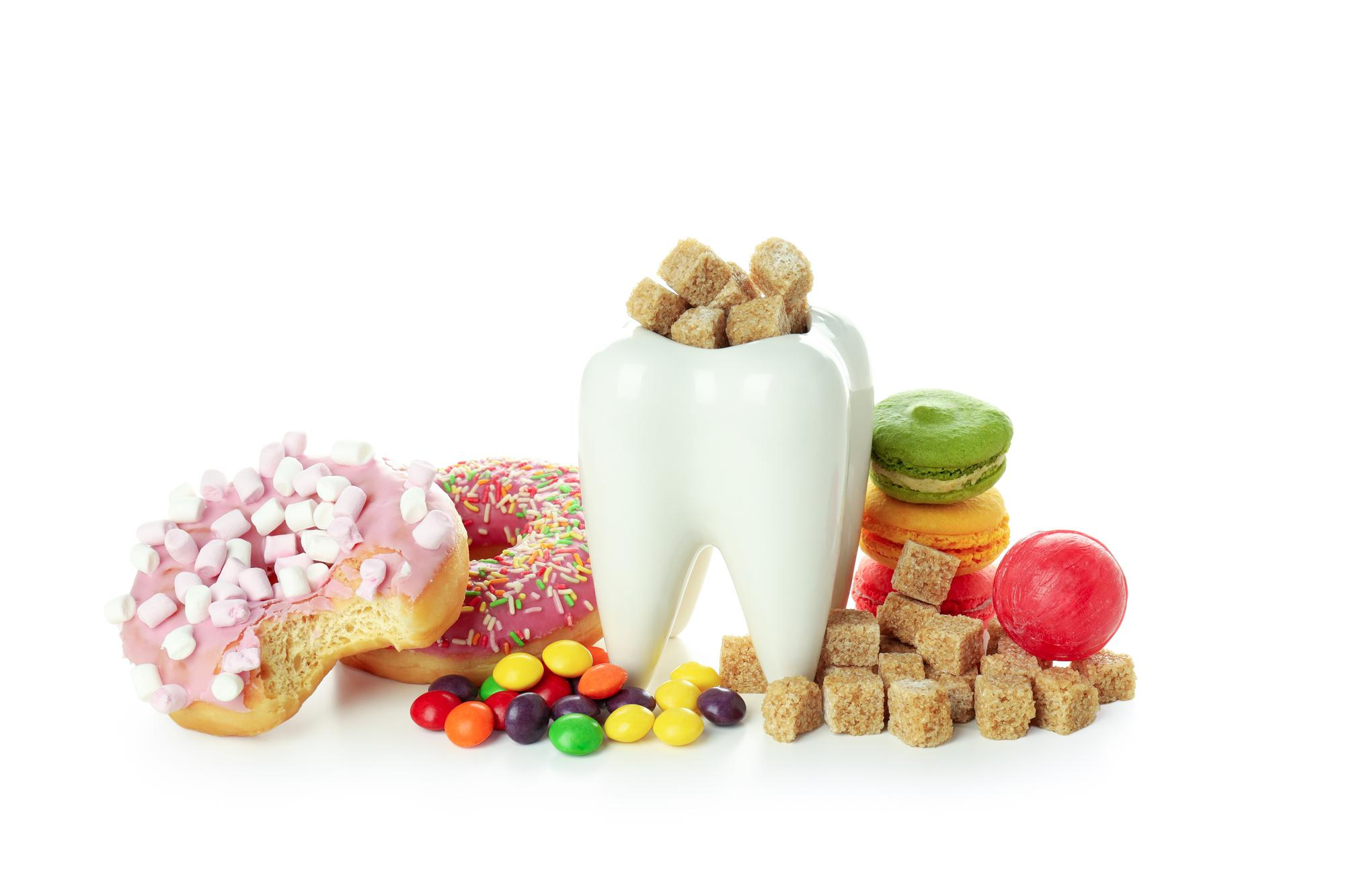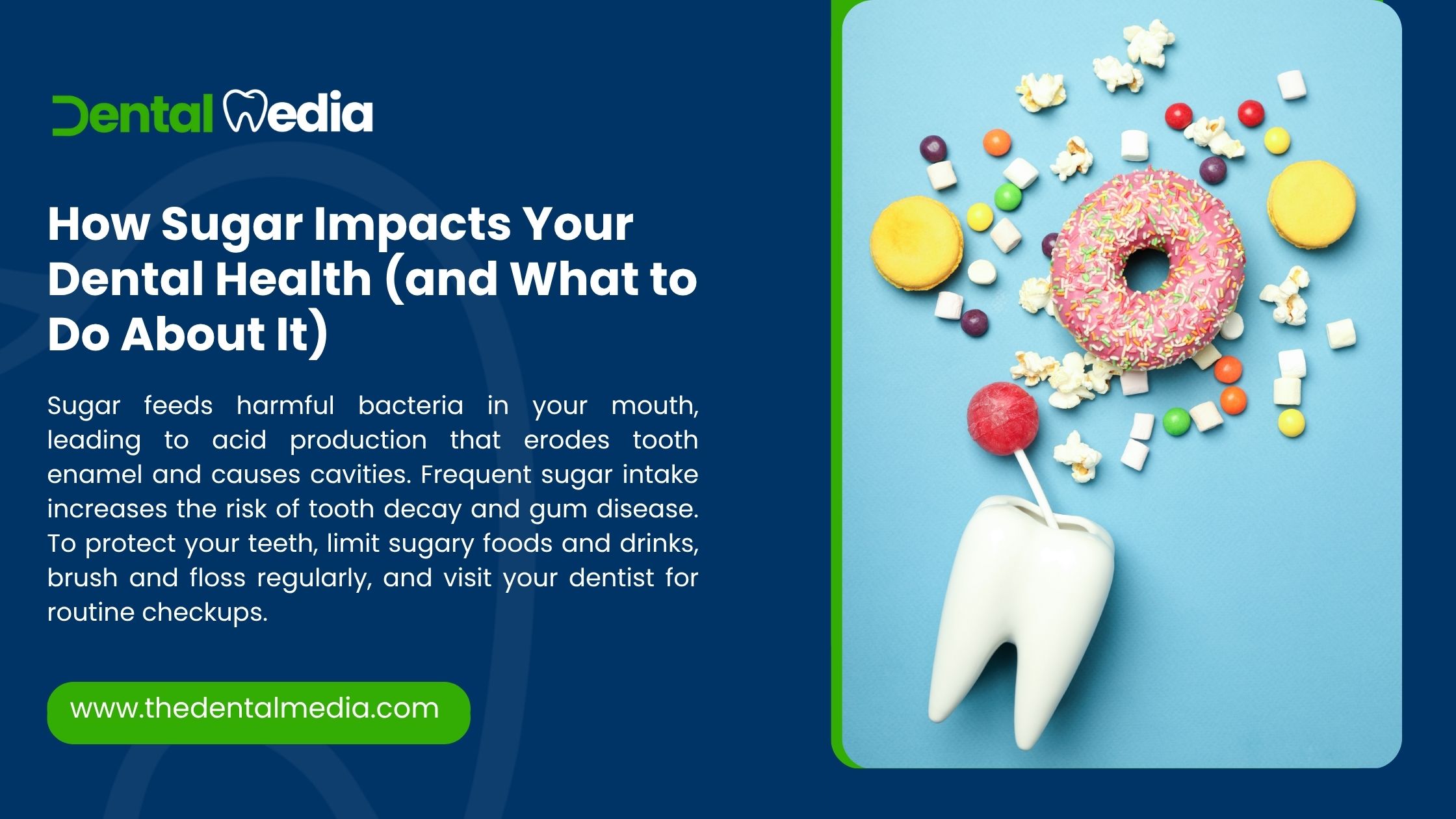Sugar is a staple in modern diets across the globe, found not only in obvious treats like candy, cakes, and sodas, but also hidden in a vast array of processed foods, beverages, and even products marketed as “healthy” options—such as flavored yogurts, granola bars, fruit juices, and sports drinks. Its widespread use is driven by its ability to enhance flavor, improve texture, and increase shelf life, making it a go-to ingredient in the food industry. While the negative health impacts of excessive sugar consumption—such as weight gain, insulin resistance, and increased risk of chronic diseases like type 2 diabetes and heart disease—are well documented, one of the most immediate and visible consequences of a sugar-rich diet is its detrimental effect on dental health.
Every time you consume sugary foods or drinks, you set off a chain reaction inside your mouth. Sugar becomes food for harmful oral bacteria, which then produce acids that attack your tooth enamel—the hard, protective outer layer of your teeth. This repeated acid exposure can lead to enamel erosion, tooth decay, cavities, and gum disease, sometimes within just months if preventive measures aren’t taken. Over time, these issues can lead to severe dental problems, including tooth sensitivity, chronic pain, infections, and even tooth loss. In addition to the physical discomfort, dental problems can also impact your appearance, speech, self-esteem, and overall quality of life.

The Science: How Sugar Affects Your Teeth
Feeding Harmful Bacteria
Your mouth is home to hundreds of species of bacteria—some beneficial, others harmful. When you consume sugar, the bad bacteria (especially Streptococcus mutans and Lactobacillus) feed on it. As they metabolize sugar, they produce acid as a by-product.
Acid Attacks and Enamel Erosion
The acid produced by these bacteria begins to erode the enamel—the hard, protective outer layer of your teeth. Once enamel wears away, your teeth become more vulnerable to:
- Tooth decay
- Cavities
- Sensitivity
- Discoloration
Formation of Dental Plaque
If not removed, the combination of sugar, saliva, and bacteria forms a sticky film called plaque on your teeth. Over time, this hardens into tartar, which can only be removed by a dental professional and contributes to gum disease.
Common Sources of Hidden Sugars
Sugar isn’t only found in candy and soda. It lurks in:
- Fruit juices and flavored waters
- Breakfast cereals and granola
- Yogurt (especially flavored varieties)
- Ketchup, sauces, and salad dressings
- Bread and processed carbohydrates
- Energy and protein bars
Learning to read nutritional labels and identifying terms like “high fructose corn syrup,” “cane sugar,” and “sucrose” can help you avoid hidden sugar.
Long-Term Effects of Sugar on Oral Health
Over time, frequent sugar consumption can lead to:
Cavities (Dental Caries)
This is the most direct result of sugar exposure. Once a cavity forms, it needs to be treated professionally through fillings, crowns, or root canals.
Gum Disease (Gingivitis and Periodontitis)
Sugary diets are linked with increased plaque, which contributes to gum inflammation and bleeding. If untreated, this can advance to periodontitis—affecting the bone that supports your teeth.
Tooth Loss
Advanced decay and gum disease can lead to tooth loss. This not only affects your appearance and ability to eat but may also impact your self-confidence and oral function.
What You Can Do: Preventive Steps and Best Practices
Limit Sugar Intake
- Follow the World Health Organization (WHO) recommendation: less than 10% of your daily calories from free sugars.
- Substitute sugary snacks with fruits, nuts, or cheese.
- Choose water over soft drinks or sweetened beverages.
Practice Excellent Oral Hygiene
- Brush twice a day with fluoride toothpaste.
- Floss daily to remove food particles and plaque between teeth.
- Use mouthwash to kill bacteria and strengthen enamel.
Eat a Tooth-Friendly Diet
- Include calcium-rich foods like milk, cheese, and leafy greens.
- Eat crunchy fruits and vegetables (like apples and carrots) that naturally clean your teeth.
- Avoid frequent snacking, which keeps acid levels high in your mouth.
Visit Your Dentist Regularly
- Get a dental check-up and cleaning at least every 6 months.
- Professional fluoride treatments can help remineralize enamel.
- Your dentist can identify early signs of decay or gum disease before they become serious.
Chew Sugar-Free Gum
Chewing sugar-free gum stimulates saliva production, which neutralizes acids and washes away food particles.
Myths About Sugar and Teeth—Debunked
Natural sugars are harmless
Even sugars from honey, agave, and fruit juices can feed harmful bacteria and cause decay.
Only kids get cavities
Tooth decay affects all ages, especially if proper oral hygiene isn’t maintained.
Brushing right after eating sugar is best
Brushing immediately after sugar consumption can spread acid around your mouth. Wait 30 minutes to allow your saliva to neutralize the acid before brushing.
Have questions about how sugar might be affecting your teeth? Contact us today!

